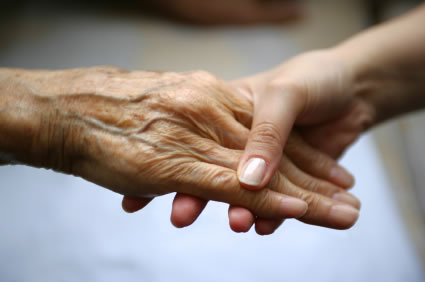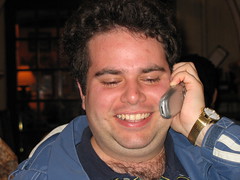Published: September 21, 2010

istockphoto
Experts are warning that dementia is the greatest health and social crisis of the century as its global financial burden continues to escalate.
The World Alzheimer Report says dementia costs will amount to more than 1% of the world’s gross domestic product this year at $604bn (£388bn).
To put this massive sum into context, if dementia were a country it would be the world’s 18th largest economy. Link to read article
Source: BBC
World Alzheimer Report 2010
Published: September 21, 2010
 “Yeah, I’m on my way home.” “That’s funny.” “Uh-huh.” “What? No! I thought you were – ” “Oh, ok.” Listening to someone talk on a cell phone is very annoying. A new study published in Psychological Science, a journal of the Association for Psychological Science, finds out why: Hearing just one side of a conversation is much more distracting than hearing both sides and reduces our attention in other tasks. [continue reading…]
“Yeah, I’m on my way home.” “That’s funny.” “Uh-huh.” “What? No! I thought you were – ” “Oh, ok.” Listening to someone talk on a cell phone is very annoying. A new study published in Psychological Science, a journal of the Association for Psychological Science, finds out why: Hearing just one side of a conversation is much more distracting than hearing both sides and reduces our attention in other tasks. [continue reading…]
Published: September 20, 2010
 Many parents will not be surprised with findings of this new European study led by Spanish researchers which has shown how the proportion of young people who watch television and play on the computer for more than two hours per day doubles at the weekend. And while boys opt for video games, teenage girls prefer to surf the net.
Many parents will not be surprised with findings of this new European study led by Spanish researchers which has shown how the proportion of young people who watch television and play on the computer for more than two hours per day doubles at the weekend. And while boys opt for video games, teenage girls prefer to surf the net.
“A sedentary lifestyle has become one of the major public health problems in developed countries”, Juan P. Rey-López, lead author of the study and a researcher at the University of Zaragoza (UNIZAR), tells SINC. “During the week, one-third of teenagers said the watched more than two hours of television per day. At weekends, this figure exceeds 60%”.
The results, published in the July issue of the journal Preventive Medicine, show that teenagers devote more time to sedentary behaviour (in front of a screen) at the weekend. [continue reading…]
Published: September 20, 2010
The New York Times takes an interesting look at the fine line that separates genius and mania in Just Manic Enough: Seeking Perfect Entrepreneurs
Though they may have many quirks, intense leaders are a common thread in the world of entrepreneurship. link to read the article
IMAGINE you are a venture capitalist. One day a man comes to you and says, “I want to build the game layer on top of the world.”
You don’t know what “the game layer” is, let alone whether it should be built atop the world. But he has a passionate speech about a business plan, conceived when he was a college freshman, that he says will change the planet — making it more entertaining, more engaging, and giving humans a new way to interact with businesses and one another.
If you give him $750,000, he says, you can have a stake in what he believes will be a $1-billion-a-year company.
Interested? Before you answer, consider that the man displays many of the symptoms of a person having what psychologists call a hypomanic episode. According to the Diagnostic and Statistical Manual — the occupation’s bible of mental disorders — these symptoms include grandiosity, an elevated and expansive mood, racing thoughts and little need for sleep.
“Elevated” hardly describes this guy. To keep the pace of his thoughts and conversation at manageable levels, he runs on a track every morning until he literally collapses. He can work 96 hours in a row. He plans to live in his office, crashing in a sleeping bag. He describes anything that distracts him and his future colleagues, even for minutes, as “evil.”
He is 21 years old.
Source: The New York Times



